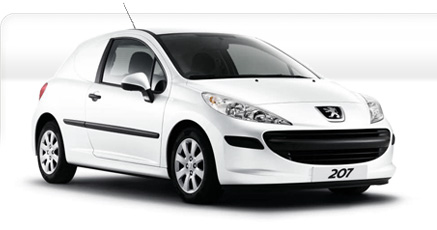If you’re heading to the exams next week then do you care whether this is a car or a van?

On the way into the office this morning I was stuck in traffic next to a Peugeot 207 vehicle which was identical to the model to the left except that it was red rather than white.
If you’re heading to the ACCA UK stream tax exams on Monday then do you care if this vehicle is a car or a van?
The vehicle is certainly a nice looking Peugeot 207 and whilst most people would say it’s a car the fact that it doesn’t have side windows behind the driver and passenger doors makes it almost certain to be treated as a van by the tax authorities.
The good news is that you’re NOT going to be examined on the detailed rules of what is a car and what is a van (or lorry or truck for that matter) so should you care about the distinction between cars and vans?
The short answer is that yes, you should care!
I’m personally pretty certain that the exams on Monday will include a capital allowance computation which involves cars or commercial vehicles such as lorries or vans.
There are some new rules being examined for the first time by the ACCA this session (see chapter 5 of our F6 ExPress notes for a quick summary) so I think this has got a good chance of being examined.
In summary, vans and lorries are commercial vehicles and are therefore eligible for the AIA and FYA within capital allowances. Cars on the other hand do NOT qualify for the AIA or FYA (unless a low emission car which gets a 100% FYA).
Also, don’t forget to look out for the CO2 emission rate of the car as if it’s >160g/km then it only gets a 10% WDA as part of the special rate pool.
On the VAT side of things then VAT can be reclaimed on lorries and vans unlike with cars where it is not possible to treat the VAT as input VAT.
Being a tax tutor I’m one of those strange people that find all of this interesting and apologies to any of you that don’t share my excitement at discussing the distinction between cars and lorries…







